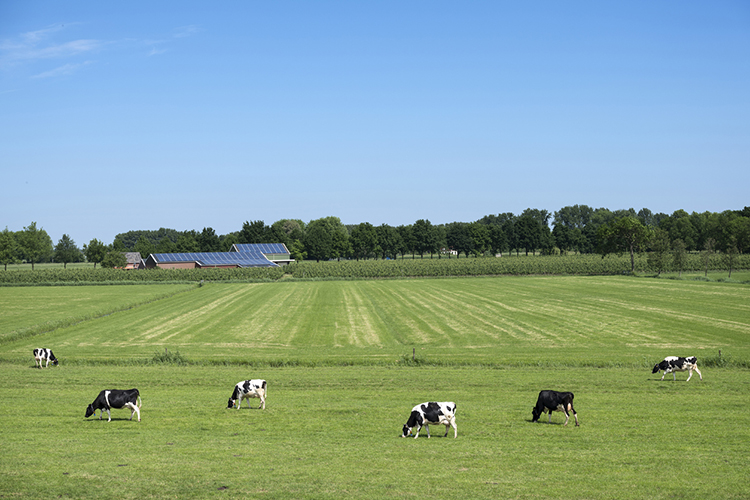
At the risk of bringing up memories of elementary school punishments, have you ever had to write, read, or say the same word over and over again? Whether for good reason or just for fun, doing this always seems to make the word get a little fuzzy. The more you see the letters and hear the sounds, the less it starts to sound like a real word with a real meaning. If you don’t believe me, try saying “omelet” 25 times in a row and see if it makes any sense to you by the end.
Repetition makes us zone out from words, tasks, and the world around us all the time. In the arena of marketing our dairy products, we use certain phrases regularly, and that can cause them to lose their hold on us or our consumers over time. One such example, which we also use on the farm side, is the buzzword-slash-marketing tool, “sustainability.”
Why might we tune out when we hear this word? It might be because it’s used a lot, or because it has such a broad meaning it can be interpreted in many ways, or because we think we already know where the person saying it is going to go with it. All of these reasons are interconnected. But there is still value in pursuing the concept of sustainability because we know it makes for more productive and healthier farms, workplaces, and supply chains. In fact, it often ties into practices farms are already using.
Communicating the value of “sustainability” without your listeners being bogged down with the word was addressed during a conversation about the topic in advance of the Animal Agriculture Alliance’s Stakeholders Summit. Connecting your audience with the specifics of what sustainable practices look like was the key message from Sara Crawford and Sara Reichelt.
“I think a lot of us are moving toward sustainability, but there are some growing pains,” said Reichelt of the connotation that’s developed around the word on the farm side. The veterinarian works with poultry producers in her animal welfare role with Aviagen North America.
To combat the connotation, she described that even if she knows a practice will contribute to the sustainability of an operation, what she leads with is how it will solve an animal health, waste, or other problem in the business. The “sustainability” piece comes later.
“At the end of the conversation, once we are aligned and we know how we’re going to move forward, I remind them that was a really great sustainable solution,” she shared. “I know it has become a buzzword, so avoiding it can help you direct the conversation without somebody having preconceived notions about where the conversation is going to go.”
Crawford, who works with the National Pork Board, supported that approach, saying it’s about helping people connect the word with the practices that get them there. She described it as a “comma and” attitude. For example, if a farmer changed out their lighting to LED bulbs, that enhances their energy efficiency, and it reduces their greenhouse gas footprint.
Many of the practices farms of all types and sizes use every day are sustainable in one way or another. It’s not a scary word, Crawford said; it’s just packaging the information in a different way that is useful to people who aren’t as familiar with on-farm practices. “It helps them connect that these things go together,” she said.
When the specifics of sustainability are shared, it can take on more meaning than just a buzzword, no matter how many times you hear it.

Katelyn Allen joined the Hoard’s Dairyman team as the Publications Editor in August 2019 and is now an associate editor. Katelyn is a 2019 graduate of Virginia Tech, where she majored in dairy science and minored in communication. Katelyn grew up on her family’s registered Holstein dairy, Glen-Toctin Farm, in Jefferson, Md.








